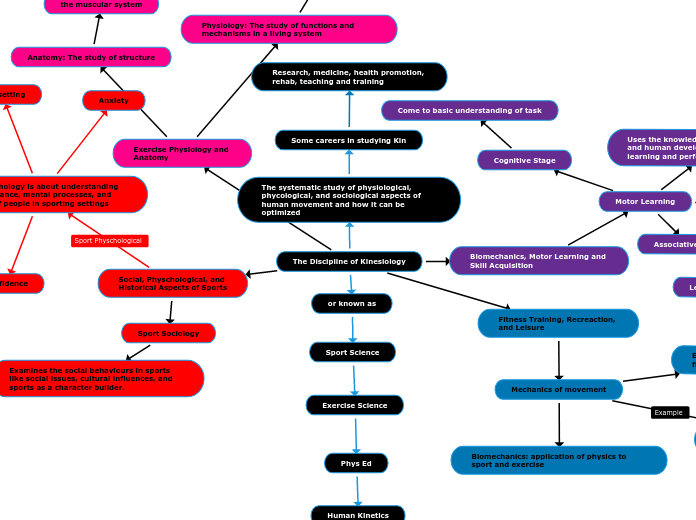The Discipline of Kinesiology
Fitness Training, Recreaction,
and Leisure
Mechanics of movement
Biomechanics: application of physics to sport and exercise
Analyze and improve the quality of a movement pattern
Ergonomics: application of biomechanics to fit the task of the worker and reduce injury
Social, Physchological, and
Historical Aspects of Sports
Sport Sociology
Examines the social behaviours in sports like social issues, cultural influences, and sports as a character builder.
“Sport psychology is about understanding the performance, mental processes, and wellbeing of people in sporting settings
Confidence
Mental Toughness
Motivation
Goal setting
Anxiety
Exercise Physiology and
Anatomy
Physiology: The study of functions and mechanisms in a living system
How molecules behave in cells
Anatomy: The study of structure
the muscular system
Biomechanics, Motor Learning and
Skill Acquisition
Motor Learning
Uses the knowledge of the nervous system and human development in patterns of learning and performance ability
Affects how a student learns and their performance
Cognitive Stage
Come to basic understanding of task
Associative stage
Learners begin to refine skill
Autonomous stage
Skill becomes automatic
or known as
Sport Science
Exercise Science
Phys Ed
Human Kinetics
The systematic study of physiological,
phycological, and sociological aspects of human movement and how it can be optimized
Some careers in studying Kin
Research, medicine, health promotion,
rehab, teaching and training
